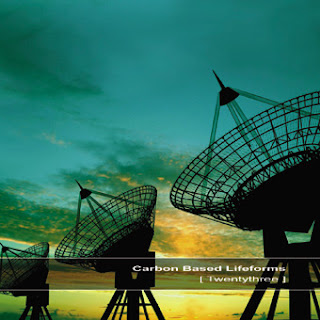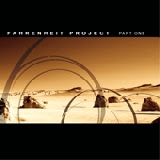
I've been listening to 36 - Hollow because it's been the first thing on my Spotify playlist for about five months now, and it's been annoying me so much I decided to just listen to it. I have a monstrous Spotify playlist where every interesting album I hear/read/know about gets dumped for future listening. You know all those albums you've been meaning to hear for ages, but never got round to? This list has
all of mine, as well as every other album that I could possibly be interested in, ever. 36 is top of the list for alphabetical reasons, and his album Hollow looked pretty short, making it an ideal background listen while I did the morning Internet rounds before getting up and having a shower.
One of the things that was bugging me about Hollow is that I couldn't for the life of me remember where I'd heard about it. That's the trouble with the Spotify playlist - it's so mind-meltingly long it's measured in days and weeks, not minutes and hours - and if I've thrown something on there based on the tiniest recommendation, I can quickly forget all about it. That's sort of why this blog exists, because there's just no record of where all this music is coming from, and thus it's far harder to remember anything about it.
For a while I seemed to remember 36 as a psy-chill act, probably appearing on some Ultimae compilation or something mixed by Sundial Aeon. I had a vague impression of ambience, of prettiness. But when I started listening, these ideas didn't quite fit. Sure it's ambient and it's very pretty, but it isn't psy-chill, and while Ultimae release more flavours of ambient than just the psychedelic, this definitely wasn't from them. Hollow sounds more droney, more field-recordingy, with lots of long, blurry drones of textural fuzz and that "blanket of love" enveloping love-fog sound a lot of laptop/blog-ambient guys do so well. Eventually I remembered that I'd heard about this guy when ASC opened one of his excellent
Deep Space Mixes with a 36 track. According to Discogs, 36 - AKA Dennis Huddleston - was "raised on a healthy diet of old skool hardcore and techno," but "these days he spends his time releasing highly emotive and melancholic ambient". Like ASC then, he's taken the unlikely path from SL2 - On A Ragga Tip to the type of ambient quiescence beloved by Brooklyn loft-dwelling beardsters. I blame atmospheric jungle for this.
I'm often suspicious of this "slow death by morphine" drone ambient, because there's absolutely loads of it out there these days, and it all sounds lovely and hazy and soporific. I have a theory that if you know the requisite production techniques it's almost impossible to do drone ambient badly. It's one of those genres where if you get the template down, it can barely fail. Also known as the "There's no such thing as bad dub" principle. This style, I suspect, is basically
easy and yet it's guaranteed to provide classy, tasteful sounding results. That makes me somehow suspicious of it. I feel more praise is due to a genre where it's very hard to avoid sounding cheesy or trite, but when it's executed properly it sounds amazing.
With that said, there's something about 36 that makes him stand out a bit. For one, the sound quality is incredibly clear. This album is an absolute delight to listen to, even through the low bitrate streams of my cheap-ass unsubscribed Spotify account (audiophiles everywhere just inexplicably shuddered). A lot of this stuff definitely has that home-brew made-on-a-laptop sound, but 36's music sounds like it was finely honed. It's probably too clean and pretty for the hipsters, because they love their lo-fi garage aesthetic. It convinces them that the music they listen to is somehow more authentic and anti-capitalist. I'm making a lot of friends with this review, aren't I?
Anyway, while 36 definitely has lots of hazy, droney fuzz, he also uses lots of delicate, pretty little chimes throughout his music. There's semblence of real melody here, real arrangement, rather than just time-stretching stuff out into dreamy oblivion. There's also an actual atmosphere here - with lots of field recordings of rainfall and white-noise-weather blended into the mix, there's a feeling of vibrant pastorality to the record. It brings to mind walking through a rain-soaked forest in spring, each delicate chime another sparkling drop of water alighting on blossoming buds or punctured by pine needles. The cover art is perfectly selected, in this respect. There's a suggestion here of close artistic control that assuages my suspicions and makes this easily the best example of this genre I've heard so far.
Genre: Laptop-ambient
Stupid Arbitrary Rating: 9/10























